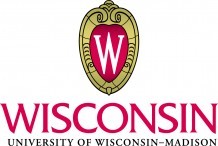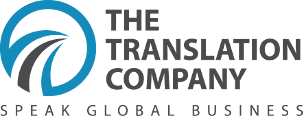
University of Wisconsin
- Undergraduate
- Continuing Education
- Graduate
- Professional Studies
About the Program
Program Description
Technical writing courses will help you to write well and pay attention to detail.You will also familiarize yourself with Financial statements, annual reports, user manuals, scientific articles, medical and technical and legal documents. Today’s translator also needs to know how to use the many new tools that are now available: machine translation and computer-aided translation software,translation memory and software-localization programs, international language databases, and more. Terminology management and translation software courses are designed to acquaint you with the latest in translation technology.
Course Descriptions
Introduction to TranslationLearn basic translation skills by translating a variety of texts from German, French, or Spanish into English and from English into German, French, or Spanish. Students also learn précis-writing, sight translation, editing and proofing skills.
Seminar in Advanced Translation
Translate specialized texts from the finance, law, medicine, science, marketing and technology fields. Focus on research and referencing in translation andhone editing and proofing skills. Courses in French,German and English into Spanish.
Comparative Systems in Translation; or GER 461:German for Professional Purposes
In Comparative Systems students examine international political, social, cultural, and economic forces shaping the world, and in German 461 students focus on those forces shaping Germany.
Seminar in Literary & Cultural Translation
As an introduction to literary translation, students workshop texts from a number of literary genres, study strategies unique to each and discuss relevant essays on translation by literary translators and theorists.
Computer-Assisted Translation
Learn to combine computer technology with translation skills to translate more rapidly and effectively through the automation of data storage, file analysis, data application and retrieval.
Translation Internship and Seminar
Get on-the-job experience with a sponsoring free-lance translator, area translation companies or design your own internship with the help of your advisor. Interpreting internships are available at area hospitals. Students describe and analyze whatthey learn and the challenges that they faced in a comprehensive internship report.
Translation Theory (MA option only)
Study the role of translation in the development of languages, cultures, and societies and discuss cultural and ideological forces shaping translationthrough historical and contemporary theories of translation.
Elective Courses (2 for the Graduate Certificate, 3 for the MA)
Introduction to Interpreting
Students study Spanish <> English interpreting techniques in legal, medical, social service and education contexts. Students focus on consecutiveinterpreting with some attention to simultaneous interpreting.
Advanced Court Interpreting
Study the theory and practice of court interpreting, including vocabulary building and development of skills necessary for consecutive and simultaneousinterpreting and sight translation, such as listening skills, note-taking and memory techniques.
Business & Professional Aspects of Translation
Students gain the practical knowledge needed to start their own business, go into free-lancing or work as in-house translators. Focus on marketing, advertising, pricing issues, and tax and legal issues.
Topics in Translation
Topics include Advanced CAT Tools, Editing for the Translation Industry, Project Management for Translation and Diplomacy in Translation. Topics vary by semester.
Digital Competencies for Information Professionals
Learn the applications and uses of information technologies and competencies, including hardware, software, and virtual and physical environments.
Editing and Publishing
Train in and practice editorial procedures by preparing fiction and nonfiction manuscripts for book or journal publication; editorial rewriting; editing; copyediting; proofreading and learning the fundamentals of layout and design.
Writing and Information Technology
Learn how to write clear, direct, technical prose for computer-users. Topics include audience analysis, modular and structured documentation, document design, word processing, and computer-aided stylistic analysis of texts.
Document Design
Try your hand at developing technical writing projects for external clients, applying theories from graphic design, usability, cognitive psychology and technical communication.
Advanced Professional Writing
This seminar focuses on the theory and development of students’ professional approaches to writing, research on professional writing genres and intensive analysis and editorial revisions of documents.
Proseminar in Linguistics
This course presents a range of linguistic constructs and demonstrates through readings, problems, and exercises how the concepts can be used in the language analysis.
Costs
Check with the university.
Editor notes
GCIT Program has courses to provide you with the professional linguistic skills, technical training and appropriate familiarity with technical tools that can make your foreign language background marketable for a broad variety of international jobs in areas as diverse as in-house and free-lance translation, lexicography, terminology, software localization and project management.
Link
http://www4.uwm.edu/letsci/translation/ma.cfm
Contact Information
UW-Milwaukee, Curtin Hall,
PO Box413, Milwaukee, WI 53201
E-mail: kscholz@uwm.edu

